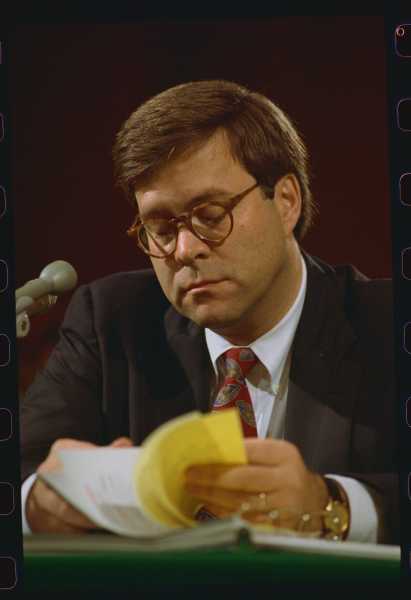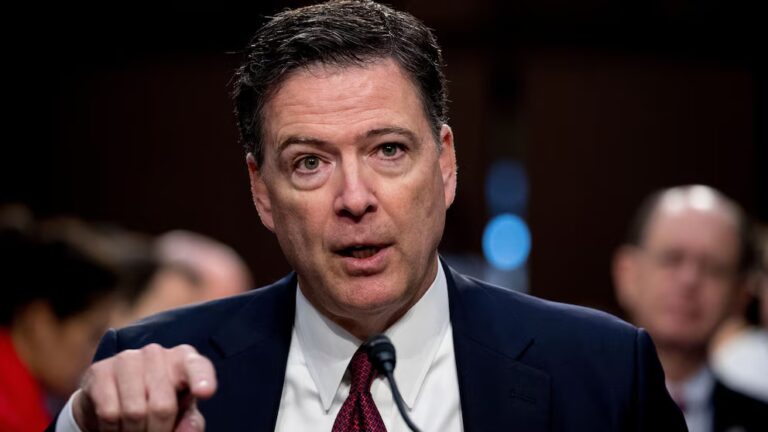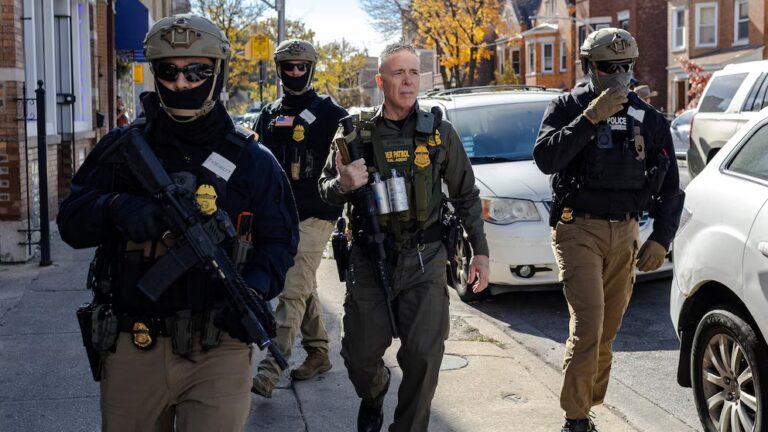
President Donald Trump says he will nominate William Barr, a conservative lawyer and former attorney general under President George H.W. Bush, to be the next attorney general.
The president announced his pick Friday, after reports circulated that Barr was the top contender for the job. Barr served as attorney general about 25 years ago, from 1991 to 1993, and was one of the youngest people to ever hold the position at the time. His ties to a past Republican administration may benefit him in what’s sure to be a bruising confirmation fight.
Barr’s nomination comes a month after former Attorney General Jeff Sessions resigned, at Trump’s request, in November. Trump tapped Sessions’s chief of staff, Matthew Whitaker, to serve as acting attorney general, a controversial appointment that led to multiple legal challenges.
Barr will likely be tasked with carrying out Sessions’s agenda on crime and immigration — and his past stint as AG shows he might be up for the task. According to a 1992 Los Angeles Times article about his tenure, he sought to turn the Justice Department into an “agenda-setting agency from a reactive institution,” tackling violent crime, gangs, and tighter immigration controls, among other issues.
Barr’s past record as attorney general will likely be heavily scrutinized during his confirmation hearing — as will his recent comments about the Justice Department.
Barr was quoted in a New York Times article last November discussing the president’s call to the Justice Department to investigate Hillary Clinton. When asked what he would do in that situation, Barr indicated that more evidence existed to prompt an investigation into the “Uranium One” deal, a false theory that Clinton sold 20 percent of US uranium to Russia, than potential collusion into whether Trump’s campaign colluded with Russians to sway the 2016 presidential election. “To the extent it is not pursuing these matters, the department is abdicating its responsibility,” Barr said.
Trump’s nominee for attorney general also wrote an op-ed in May 2017 defending Trump’s decision to fire former FBI Director James Comey. He argued that Comey had erred in his handling of the Clinton investigation during the 2016 election, and he suggested the criticism — that Trump fired Comey to interfere with the Russia investigation — was unfounded.
Barr reasoned that those leading the investigation in the Justice Department, and the career prosecutors and FBI agents on the case, would allow the probe to continue unimpeded. “Comey’s removal simply has no relevance to the integrity of the Russian investigation as it moves ahead,” Barr wrote.
Barr’s reaction to Comey’s ouster came before the appointment of special counsel Robert Mueller’s investigation. Senators will press Barr at the confirmation hearings about his stance on Mueller, since he’s set to take control of probe.
Sourse: vox.com






